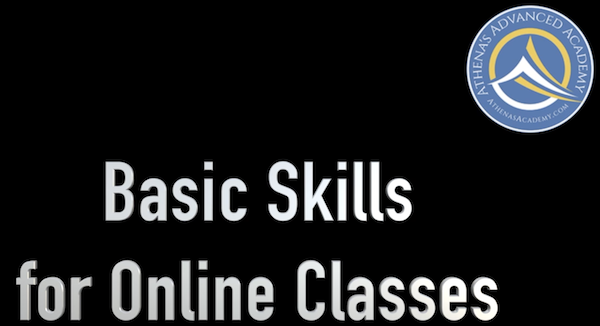I often see this question in homeschooling and parenting groups: How do I know if online education will work for my student?

I’m not a proponent of kids sitting in front of computers all day with no real-world interaction, so if you’re looking to an answer whether you should enroll in K12 or another full-time online program, this musing won’t help you.
However, I have been teaching online courses since 2013 and I think it’s a great way for kids to access part of their education. I have also noticed some patterns in what makes students successful. Here are a few pointers to help you in your decision.
Don’t start with a hated subject
For the first class, make sure it’s in an area that your student loves. Don’t foist their most hated subject on them for their first online course. I see this all the time: “My student is struggling with math so I’m going to try an online course.”
If your student already loves online learning, certainly, give it a try. But for the first course, choose something that your student is passionate about.
Make sure the teacher runs an interactive, creative classroom
Not all online courses are made the same. Your student will have the highest likelihood of success with support from a live teacher who makes learning fun.
Find out what specific skills your student will need
There are some skills that are essential. For example, I get students who don’t know how to copy and paste on their computer. I can’t stop class to show them.
There are also skills specific to each course. Students in my history of music class need to know how to start and stop audio and how to move to a specific timestamp within the recording.
I made this video for kids who are taking my classes to explain the basic skills they will need.
Monitor your child’s engagement
You’re going to be tempted to get your own work done during your child’s online class. I understand: I wanted to do the same thing with mine. However, if you have any concern about whether your child will thrive in the course, do not walk out of the room during the first three classes. Pretend you’re working on another computer or absorbed in a book. Observe your child’s engagement and interaction.
If it doesn’t work…
Students who are ready for online education should do fine. They may complain if the class isn’t fun or is not at the right level for them without showing any particular distress.
But some students are clearly not ready:
- They check out and start playing games on their computers.
- They disrupt discussions intentionally or unintentionally by not staying on topic.
- The teacher may even contact you about their behavior or lack of engagement.
My recommendation is not to push it the first time. If your child is bored or disruptive in class, chalk one up to experience and withdraw them from the class. (Don’t ask for a refund if the class doesn’t work for your child—online teachers can’t work with kids who aren’t ready to be in an online environment.)
When is the right time?
Most children have a point where online learning starts working for them, but it’s not any specific age. The best thing to do, when it doesn’t seem that the student is ready, is not to push too hard. Forcing them to stay in a class when they are getting nothing out of it will punish them (and the teacher and other students) and may create a permanent aversion.
For more information about my courses:
